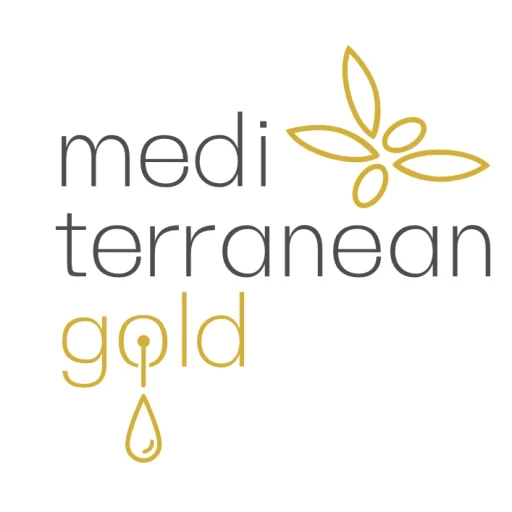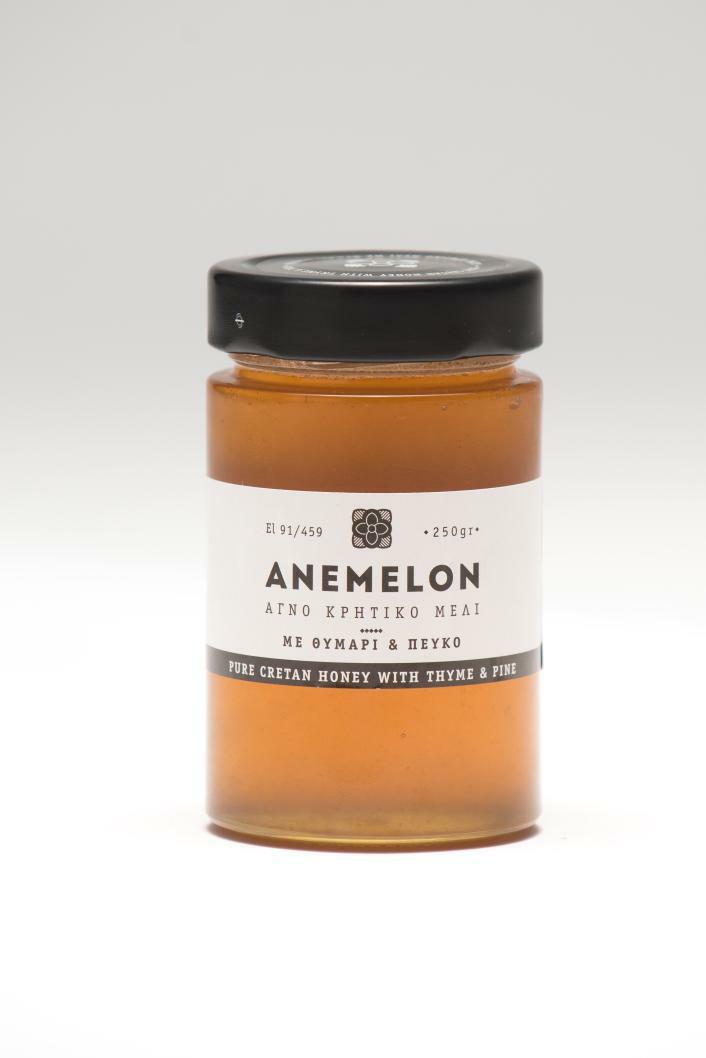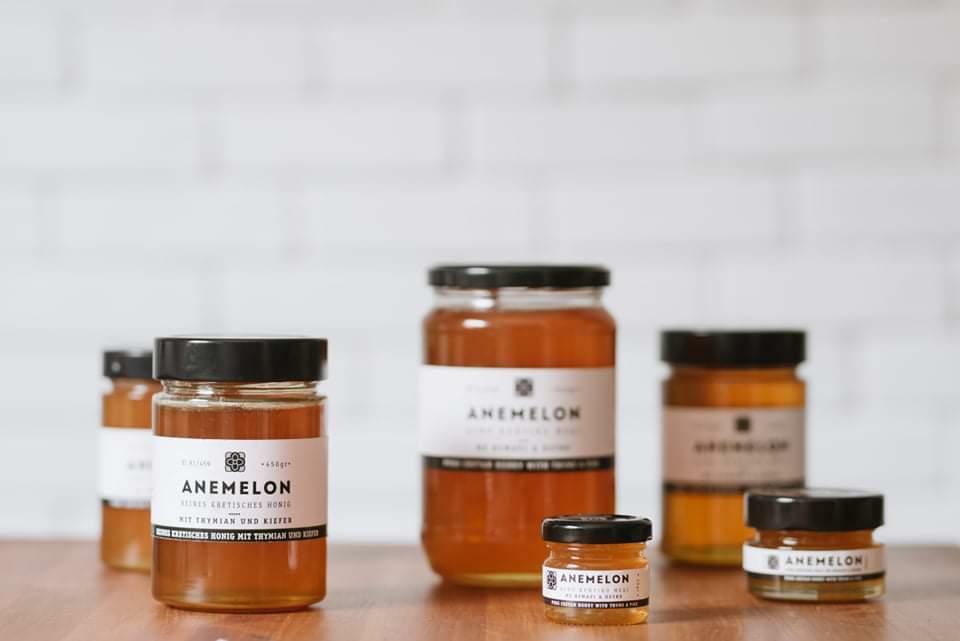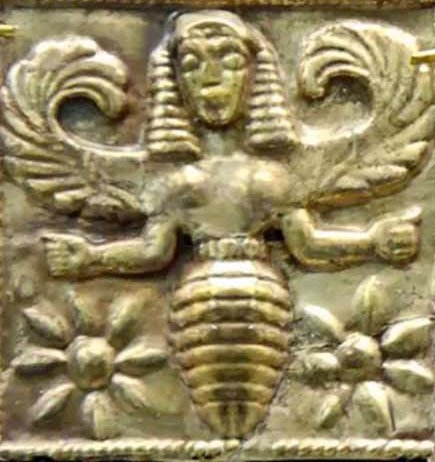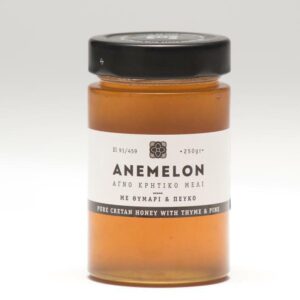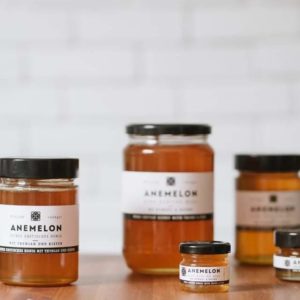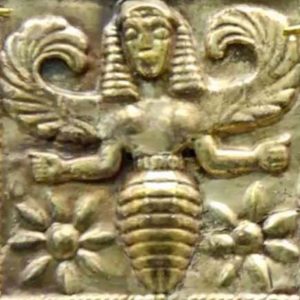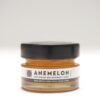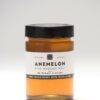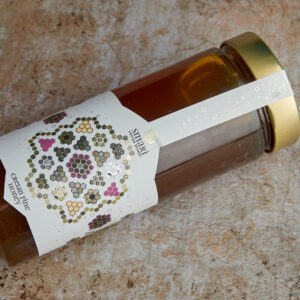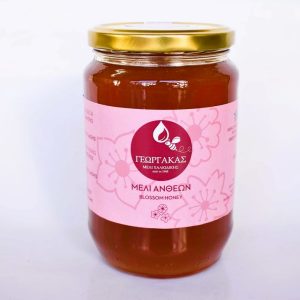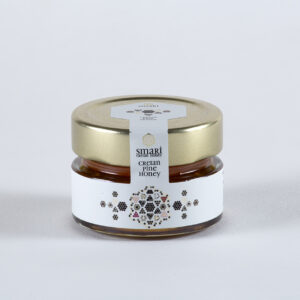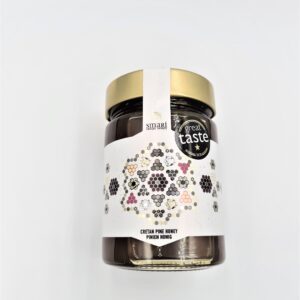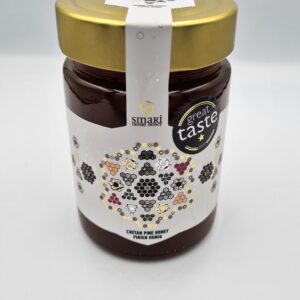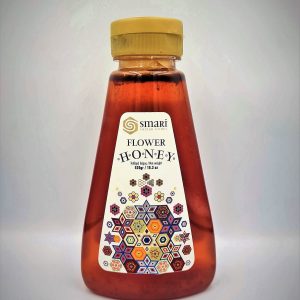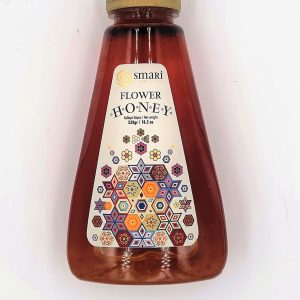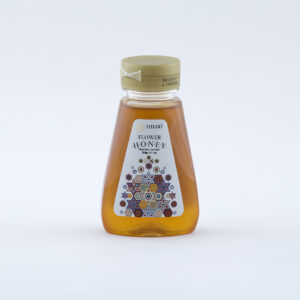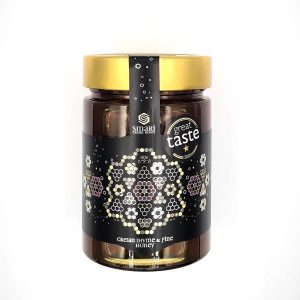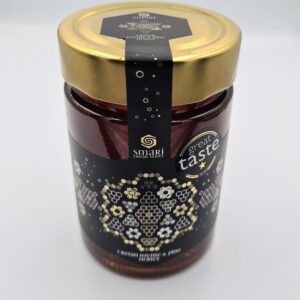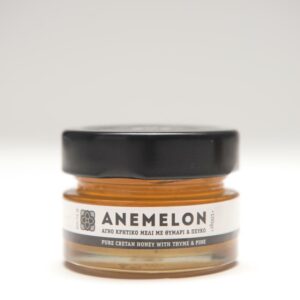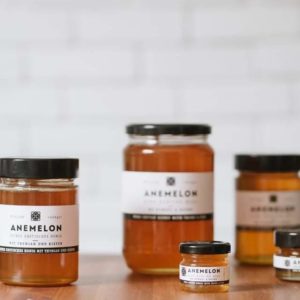Honey that smells like Crete! It is a natural mixture of thyme and pine, pure, red, thick and collected with love. Small production product harvested in August. It is the season when the late thyme is immediately accompanied by a large flow of honey in the neighboring pine forests. Once collected, it is packaged in such a way as to keep closed in its jar all the flavors and aromas of our Crete and all the rich nutrients it contains.
It is rich in carbohydrates while 1/4 of its percentage are pollen grains that supply it with minerals and trace elements. Calcium, magnesium, silicon, iron, zinc and manganese, are the treasure it contains. Thus, thyme honey is known for its antiseptic and tonic power. Also, its high content of copper and boron, strengthen the fight against infections of the respiratory and digestive systems. Undoubtedly, its most powerful action is the antioxidant as it acts as an inhibitor against prostate and breast cancer. Finally, it is full of vitamins such as vitamin A, β-carotene, and a complex of B vitamins. All of the above provide our body with energy and contribute to its proper functioning.
HISTORY "FROM GOLD" BEHIND THE PRODUCT
In Ancient Greece, love for honey has been captured with passion and emotion. Hippocrates, the father of Medicine, praises the beneficial effect of "wine honey" on the human body. Pythagoras finds with surprise that honey makes us feel less tired , while Democritus writes about longevity excluding miraculous honey!
As far as Cretan beekeeping is concerned, Crete was born with honey! The first bees are found in the Minoan era, about 4,000 years ago. During the excavations at Phaistos, clay hives were discovered from the time of the palaces dating to around 3,400 BC. Chronologically, it is long before the Homeric Age, that is, the Neolithic! At the same time, the famous gold jewel of Knossos, where two bees are holding a honeycomb, came to light again after thousands of years.
From Glafkos, the son of Minos and Crete, who drowned in a jar full of honey, chasing a mouse and resurrected by the seer Polydos with the help of a magic herb, many things have happened to this day. Many years have passed, many food products have entered our lives. And without a doubt, many traditional, eating habits of the years are shaken. But one thing is for sure: the gift of the intelligent bee will always be considered the nectar not only of the gods but also of humans!
| Weight | 0,415 kg |
|---|
